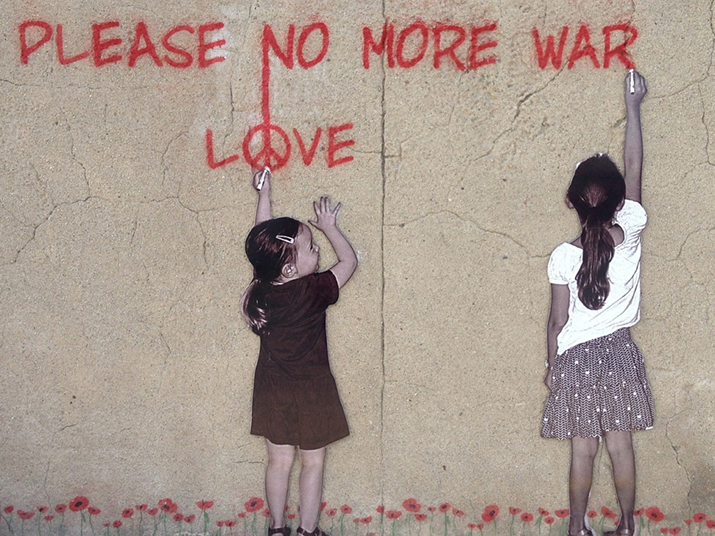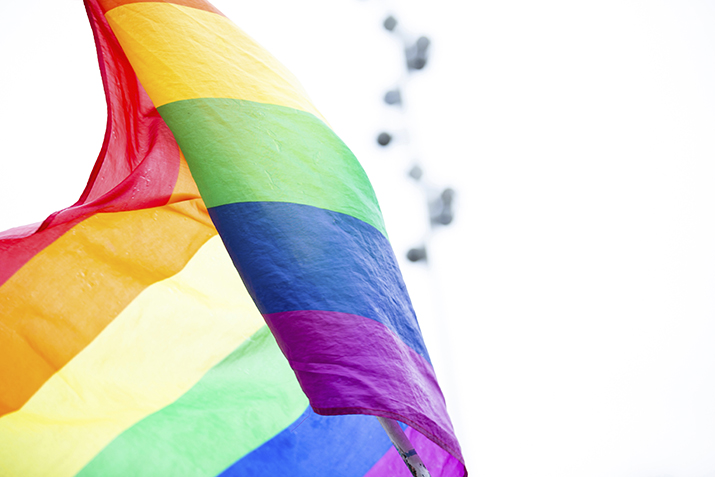HAPPENING AT THE UN
THE INTERNATIONAL DAY OF PEACE
"There are things never to be done, neither by day nor by night, neither by sea nor by land. For example: war". Gianni Rodari knew how to speak to children, and to all of us who retain the ability to feel some sense of wonder every now and then, to be moved when it happens, to be indignant when necessary, and to try to change things when possible. Attempting to put a stop to all conflicts would be somewhat naïve but it’s important to keep tabs on current affairs and to remember that it is not always possible to leave the house without encountering a land mine in some parts of the world. The International Day of Peace presents us with a good opportunity to do so. The day is celebrated every year on 21 September at the behest of the United Nations. The day was originally set for the third Thursday of September, but a resolution passed on 7 September 2001 established a date that will always remain the same, rendering it difficult to forget or avoid.
The initiative’s purpose is to urge organisations and individuals to focus on promoting educational activities on the theme of global peace. In a world afflicted by war, this is a particularly useful day to remember some the most serious global crises.
Every day, the news presents us with terrifying images of death and destruction. We often find it overwhelming and find ourselves reaching for the remote to change the channel. That’s understandable. Unfortunately, however, the situation is much worse than we see on the news. Most conflicts are not reported by the mass media, and cameras fail to witness massacres that take place in areas of the world completely cut off from the media network. Partly because it is difficult to keep track of everything and partly because we tend to ignore crises if they have no direct repercussions on our lifestyle or land.
Conflicts continue to affect several continents in 2021. They are concentrated in Africa and the Middle East, but there are also clashes in the Americas. The equatorial band runs through the middle of these continents and according to experts, the most common reason for conflict is water, but we don’t talk about it enough.
The goal is to urge people to focus on promoting educational activities to foster dialogue
The reasons given for declaring war have tended historically to be linked to "lofty ideals". It is almost always a question of defending honour, tradition, identity, or the achievements of our forefathers. We start full of hope for the future, arm in arm, in the belief that the conflict will not last too long. We usually return after several years, our numbers greatly reduced, without fully understanding what it was all for. Historians explain to the great-grandchildren of those embroiled in war that the reasons were strategic and geopolitical, in one word: economic. In the future, our descendants will probably study the year 2020, and how competition for "blue oil" increased due to the growing world population, climate change, irregular rainfall, and severe drought, with serious consequences for many areas of the planet.
Some people, however, have been reporting on this issue for a while. "If there is no water, people will start to move. If there is no water, politicians are going to try and get their hands on it and they might start to fight over it", warned Kitty van der Heijden, Director General for International Cooperation at the Dutch Ministry of Foreign Affairs. "It’s threats like these that keep me up at night", stated the diplomat in a webinar hosted by the World Resources Institute (WRI), a US-based research group. According to the WRI, 17 countries face "extremely high" water stress levels, while more than two billion people live in countries that suffer from "high" water stress.
The latest report from the International Crisis Group confirms that most ongoing armed conflicts are occurring in Africa. Libya is a powder keg, while violence is escalating in Mali following the resignation of President Ibrahim Boubacar Keïta following months of mass protests and a military coup.
The Middle East has always been in the eye of the storm, and this regularly gets reported on by the media, but Syria is not the only country at war in the region. The situation is also critical in Lebanon and especially in Yemen where there has been no peace since the Arab Spring of 2011, the popular uprising that forced President Abdullah Saleh to resign. The ensuing conflict resulted in the deaths of over 250,000 people.
Conflicts continue to affect various continents in 2021. These are mainly concentrated in Africa and the Middle East, but there are also clashes in the Americas.
More than half of the casualties were indirectly caused by the clashes due to a lack of provisions or health care. Today, for the fourth consecutive year, the Arab country is experiencing the most serious humanitarian crisis in the world and is on the verge of famine. Over 80 percent of the population lives below the poverty line and at least 20 million people need assistance. We don’t even talk about Palestine and Israel any more; it is taken for granted that violence will re-emerge periodically.
Water is the most common reason for conflict today
Meanwhile, conflicts also continue in Colombia, where the pandemic has contributed to a dramatic increase in violence. Several armed groups have tried to exploit the health crisis to extend control over the region, including to recruit new fighters. Civilians have died by the dozen due to bombs and attacks.
The International Day of Peace cannot solve everything. But it does provide us with an opportunity to take stock, to try to understand what is happening, and above all to remember that there is one thing you should never do "by day nor night, by land nor sea".








